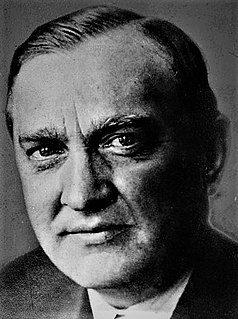A Quote by Michael Mandelbaum
While analogies are useful, however, they can also be misleading. They smuggle in assumptions that can be wrong.
Quote Topics
Related Quotes
Analogies and metaphors have often proved pivotal in expanding our thoughts both within and without science, and so one should not discourage the attempt to synthesize apparent opposites. However, citizens of the New Age often forget that, when they involve science, analogies should be tempered by experiment and calculation.
Fairy tales and mythology have always been an exaggerated distillation of the real world. Think of them as blueprints for how to deal with a multitude of situations that can arise in a person's life. The beauty of them is that their analogies resonate so deeply and they also entertain while they teach.
If others tell us something we make assumptions, and if they don't tell us something we make assumptions to fulfill our need to know and to replace the need to communicate. Even if we hear something and we don't understand we make assumptions about what it means and then believe the assumptions. We make all sorts of assumptions because we don't have the courage to ask questions.
It makes no sense to seek a single best way to represent knowledge-because each particular form of expression also brings its particular limitations. For example, logic-based systems are very precise, but they make it hard to do reasoning with analogies. Similarly, statistical systems are useful for making predictions, but do not serve well to represent the reasons why those predictions are sometimes correct.

































